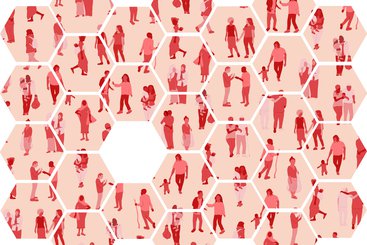In social cohesion literature, six factors are routinely cited as influencing refugee–host relations:
- amount and quality of contact between communities
- scale, speed and duration of displacement
- spatial living configurations
- competition over scarce resources
- ethnic, religious and linguistic allegiances
- aid and assistance.
During our research on social cohesion in Tanzania, we found that all six were relevant, though to differing degrees. Our research also revealed a seventh factor: the role of national policy in shaping social cohesion and, by extension, the implications for social cohesion programming.
What role for external actors?
Policy decisions that concern refugees in Tanzania are shaped by return and repatriation. In practice, this means removing incentives to stay by limiting social and economic opportunities to the bare minimum of what is needed to survive.
Many hosting countries share the perspective of the Tanzanian government: that return is the preferred solution and asylum is a temporary measure until this is possible. So they’re reluctant to support initiatives, such as social cohesion, that are seen as a stepping stone to long-term local integration.
This makes navigating a role for external aid actors a politically and culturally sensitive problem. Particularly as social cohesion is often framed as a domestic issue associated with social engineering, state-building and national identity formation.
Aid actors need to engage more meaningfully with government actors (at the national, local and municipal levels) in the design and delivery of social cohesion programmes.
Advocacy is also key. Refugee clampdowns by governments in the Global South ‘[are] not happening in a political void’, but emulate the increasingly restrictive policies implemented in the Global North. With this in mind, international aid actors should challenge their governments’ own treatment of refugees.
Scratching the surface
In contexts like Tanzania, where national policy is designed to segregate and isolate, there are limits to what aid actors can realistically achieve through individual projects designed to improve social cohesion.
As long as the underlying structural context and wider political agendas limit opportunities for social cohesion, aid interventions will only scratch the surface of more meaningful change.
Social cohesion programming has been critiqued for making overly optimistic claims and for using ‘improving social cohesion’ as a catch-all goal – one not supported by a logical theory of change.
Instead of seeking to orchestrate complex refugee–host relations, aid should focus on the practical barriers that get in the way of social relations. For example, language lessons for refugees unable to communicate with hosts. Or, only implementing projects through partners that refugees trust, such as refugee-led organisations (RLOs), local non-governmental organisations (NGOs) or faith-based groups.
Ultimately, aid actors need to be more realistic and honest (with themselves, donors and most importantly with beneficiaries) about the extent to which individual social cohesion projects can meaningfully achieve social cohesion.
Reading list
Browne, E. (2013) State fragility and social cohesion. Birmingham: GSDRC (https://gsdrc.org/publications/state-fragility-and-social-cohesion/).
Fearon, J.D., Humphreys, M. and Weinstein, J.M. (2009) ‘Can development aid contribute to social cohesion after civil war? Evidence from a field experiment in post-conflict Liberia’ American Economic Review 99(2): 287–91 (https://doi.org/10.1257/aer.99.2.287).
Holloway, K. and Sturridge, C. (2022) Social cohesion in displacement: the state of play. HPG working paper. London: ODI (https://odi.org/en/publications/social-cohesion-in-displacement-the- state-of-play/).
Kuch, A. (2019) ‘Tanzania wants Burundian refugees sent home. But they face big challenges’. The Conversation, 29 August (http://theconversation.com/tanzania-wants-burundian-refugees-sent- home-but-they-face-big-challenges-122585).



